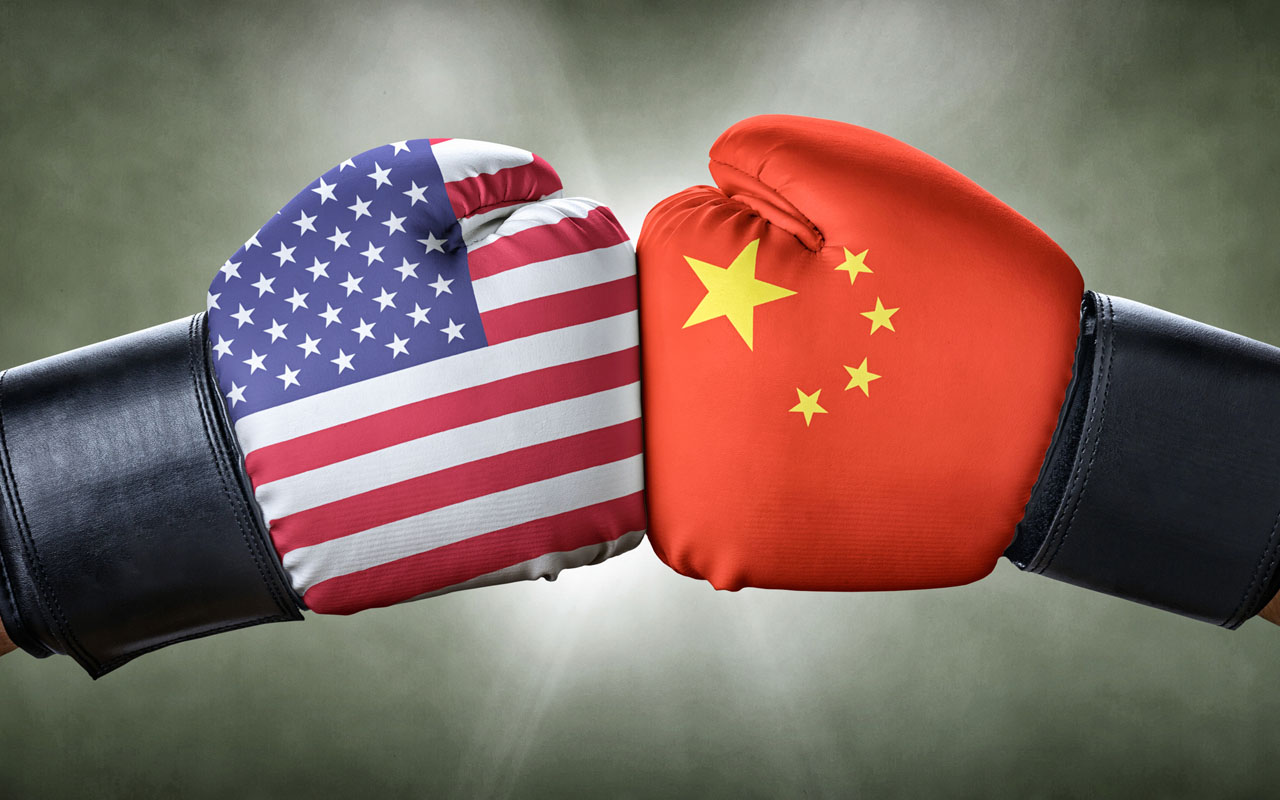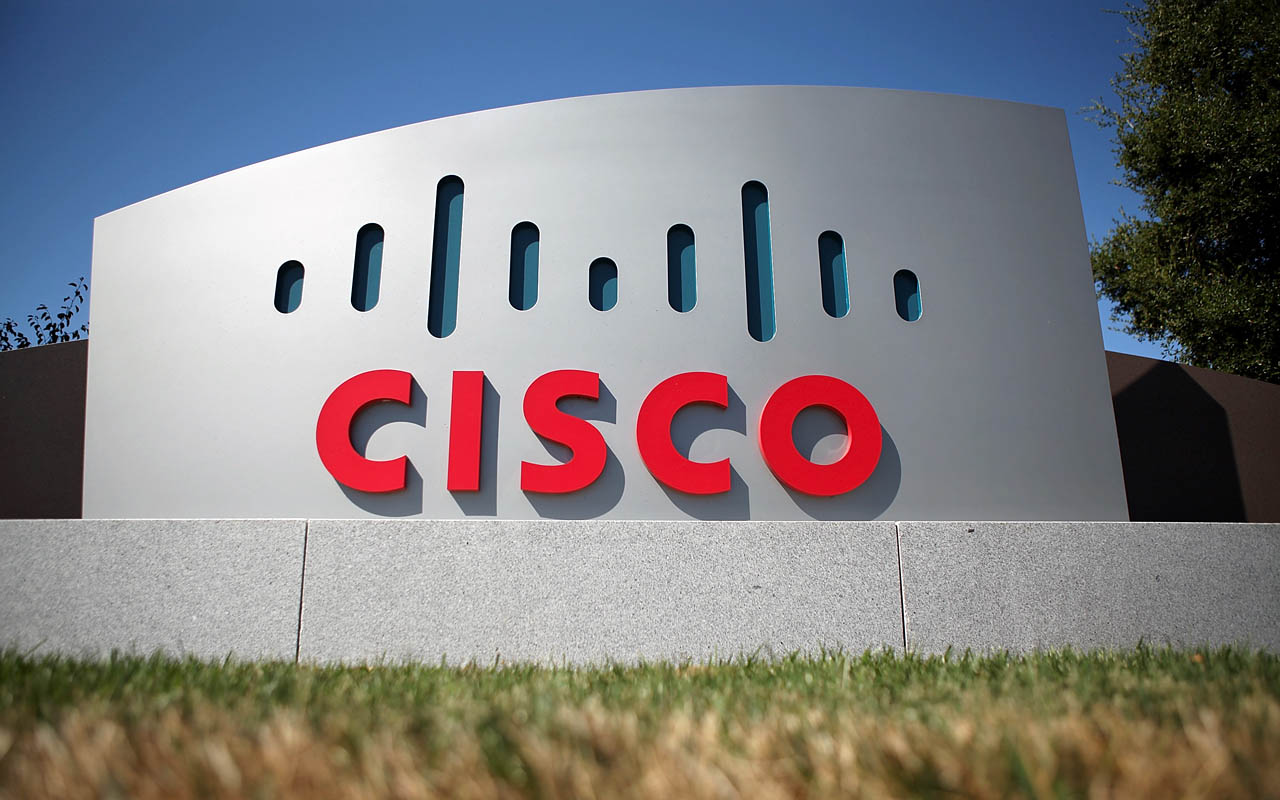6 Tech Stocks to China-Proof Your Portfolio
The ongoing trade war between the U.S.


Profit and prosper with the best of Kiplinger's advice on investing, taxes, retirement, personal finance and much more. Delivered daily. Enter your email in the box and click Sign Me Up.
You are now subscribed
Your newsletter sign-up was successful
Want to add more newsletters?

Delivered daily
Kiplinger Today
Profit and prosper with the best of Kiplinger's advice on investing, taxes, retirement, personal finance and much more delivered daily. Smart money moves start here.

Sent five days a week
Kiplinger A Step Ahead
Get practical help to make better financial decisions in your everyday life, from spending to savings on top deals.

Delivered daily
Kiplinger Closing Bell
Get today's biggest financial and investing headlines delivered to your inbox every day the U.S. stock market is open.

Sent twice a week
Kiplinger Adviser Intel
Financial pros across the country share best practices and fresh tactics to preserve and grow your wealth.

Delivered weekly
Kiplinger Tax Tips
Trim your federal and state tax bills with practical tax-planning and tax-cutting strategies.

Sent twice a week
Kiplinger Retirement Tips
Your twice-a-week guide to planning and enjoying a financially secure and richly rewarding retirement

Sent bimonthly.
Kiplinger Adviser Angle
Insights for advisers, wealth managers and other financial professionals.

Sent twice a week
Kiplinger Investing Weekly
Your twice-a-week roundup of promising stocks, funds, companies and industries you should consider, ones you should avoid, and why.

Sent weekly for six weeks
Kiplinger Invest for Retirement
Your step-by-step six-part series on how to invest for retirement, from devising a successful strategy to exactly which investments to choose.
The ongoing trade war between the U.S. and China is having an unmistakably negative effect on the technology sector. Numerous tech stocks have heavy Chinese exposure, whether it’s via the rare-earth materials they use in their products, manufacturing done in China or just deriving a large percentage of revenues from the country. And their shares have been punished as the rift between the two countries has widened.
As a group, the outlook is worrisome. But a few tech stocks are more shielded than others from Chinese trade issues. Just look to the cloud.
Cloud computing has been a lucrative mega-trend on its own; whole industries have moved into scaled data centers, linked by fiber cable and wireless networks. But it also is shaping up to be something of a safe haven from trade concerns. China may make some of our devices, and their chips may go into our technology infrastructure, but the clouds themselves are ours, and so is the value inside them. Thus, many companies that operate cloud-based services look to be relatively well-insulated against this long-running U.S.-China trade spat.
The following are six tech stocks that can help China-proof your portfolio. Many of these stocks have run hot in 2019, and some of them are expensive as a result. But each is also a strong long-term holding based on the merit of their technological innovations and the lucrative markets they address.
Data is as of May 30.

Adobe
- Market value: $133.9 billion
Adobe (ADBE, $274.51) began life as a printing software company that became well-known for its early Web video engine Flash, Photoshop photo-editing software and Acrobat PDF software.
Adobe’s products drove strong growth on their own, but the cloud truly turned them into profit machines.
Under CEO Shantanu Naruyen, who stepped into the role in 2007, Adobe has turned all its software into cloud-based services for creative work, document management and, more recently, marketing. Importantly, it now offers these services as annual subscriptions rather than one-time software purchases, which not only has grown its sales and profits, but made them more predictable.
Shares have rocketed 325% higher in the past half-decade to clobber the relatively modest 45% from the Standard & Poor’s 500-stock index – a reward for the company’s operational progress. Revenues more than doubled between 2014 and 2018, while profits have shot up from 27 cents per share to $2.59 in that time. Free cash flow has tripled. That cash hasn’t been converted into a dividend yet. Instead. Adobe has spent on acquisitions such as Marketo (B2B marketing management cloud platform) and Magento (commerce platform) – it bought both in 2018 for a combined $6.3 billion. Even then, the company’s cash and short-term investments are just about enough to pay off all its long-term debt.
Mark Tepper, president and CEO of Strategic Wealth Partners, recently told CNBC his firm is “backing up the truck” on software companies such as Adobe, which he says has “no exposure to China.” Wall Street analysts are high on the stock, with 25 of the 31 covering it calling it a “Buy” or “Strong Buy.” That includes Morgan Stanley’s Keith Weiss, who writes that the company can maintain a 20% annual profit growth rate over the next three years, even if digital media growth slows.

Cisco Systems
- Market value: $229.3 billion
Cisco Systems (CSCO, $53.57) hasn’t been completely untouched by increasingly hostile trade rhetoric, but its stock has nonetheless risen to levels not seen since the dot-com boom, when it briefly was the world’s most valuable company.
Cisco makes networking equipment and telecommunications software, but also provides other tech services including cybersecurity. CEO Chuck Robbins has turned firm’s focus toward delivering more of its software services via subscription, a la Adobe. Still, some of its supplies are vulnerable to trade tensions, but the company has taken several steps to reduce its exposure to the recently increased tariffs on Chinese imports.
“When we saw the indication that the tariffs were going to move to 25% on Friday morning, the teams kicked in and we actually have executed completely on everything that we need to do to deal with the tariffs,” Robbins said during Cisco’s most recent quarterly conference call. “We see very minimal impact at this point … and it is absolutely baked into our guide going forward.”
Just note that while Cisco may be better protected than many tech stocks, it’s not perfectly shielded. Daniel Milan – a managing partner for Cornerstone Financial Services in Birmingham, Michigan – praises the company’s leadership in moving to non-China suppliers, but adds that Cisco still had to push through price increases on its networking equipment early in 2019. “I’m not so sure that Cisco is insulated from the Chinese trade war,” he says.
Cisco also offers a little defense in the form of a dividend offering a modest 2.6%. More promising is the fact that said dividend, at 35 cents per share, has multiplied several times over since its initial 6-cent payout in 2011.

Palo Alto Networks
- Market value: $19.4 billion
Computer security is a difficult niche within the software business. Guards must protect every software window, but crooks need find only one hole for disaster to strike.
The approach of Palo Alto Networks (PANW, $204.30) is to implement “next generation” firewalls offering “zero trust,” because negligent insiders can do as much damage as malicious outsiders. Palo Alto’s software inspects and logs all network traffic, determining who needs access to what instead of just letting any insider into everything.
While it’s nice to invest in tech stocks that will survive the trade war, more ideal is a company that could actually thrive from it. Cornerstone’s Milan believes Palo Alto may do just that, benefiting from this conflict “as more and more people and business become aware and/or concerned with cyber security threats from China, leading to more business.”
Palo Alto, which came public in 2012, has exploded by roughly 660% from its IPO price. Its revenues nearly quadrupled between 2014 and 2018. The company still is not profitable on a generally accepted accounting principles (GAAP) basis, but it’s at least making headway into its losses.
The company took a hit recently following its fiscal third-quarter earnings report, in part – ironically – on worries about its transition to offering its products as cloud-based annual subscriptions. Two recent acquisitions also cut into its outlook.
Still, while many analysts rushed to downgrade their price targets, the majority – 29 of 41 – remained in the “Buy” camp. Even Cowen analyst Nick Yalo, who has a “Hold” on PANW, told MarketWatch that while there’s near-term profitability risks, “we think Palo Alto Networks’s continued expansion into the cloud security market is the right move over the long term.”

Salesforce.com
- Market value: $120.6 billion
Salesforce.com (CRM, $155.66) – a cloud-based customer relationship management software specialist – was founded in 1999 to rent a CRM application built on an Oracle (ORCL) database. Now, after many years, Salesforce is working to unshackle itself from that database by developing its own.
China resists foreign cloud applications – that knocks out a large potential area of growth, but it also means U.S.-based application companies aren’t impacted by tariffs (except to the extent that customers go out of business).
Salesforce revenues have grown by about roughly 25% annually for the past few years, with analysts forecasting closer to 20% (so less, but still rapid growth) this year and next. And while profits are expected to take a small step back this year, analysts on average are looking for 28.5% annual earnings expansion over the next half-decade.
CRM also is one of the best-rated tech stocks out there. All but four of the 45 analysts covering the stock consider it buy-worthy.
“Salesforce is a great addition,” writes Steve Koenig, an analyst at Wedbush Securities, where CRM is on the “Best Ideas List.” Large-cap software as a service names “are dependable holdings,” he writes, taking advantage of technology trends that have been in place for a decade. Piper Jaffray analyst Alex Zukin calls CRM “the most attractive risk/reward in our coverage universe today.”
“It is reasonable to assume that Salesforce would be less susceptible to the Chinese trade war and thus considered a ‘winner’ in comparison to other more manufacturing heavy tech companies,” Cornerstone’s Daniel Milan says. But he cautions investors to remember that escalating tensions could cause a global growth slowdown, which would hit even China-insulated companies.

Square
- Market value: $26.9 billion
Square (SQ, $63.67) is best known for its credit card readers that plug directly into mobile phones. But they’re a Trojan Horse. Behind them lie a host of banking and other services. These are the real secrets to the company’s success.
In 2018, Square’s revenues grew 50% year-over-year to $3.3 billion. While the company did absorb a $38 million loss, that was 40% better than 2017’s red ink. The company still has nearly $1.1 billion in cash and short-term securities, however, which is important because Square regularly makes acquisitions to expand its platform. These include Weebly, a website hosting service acquired last year for $365 million, and Eloquent Labs, which makes a conversational artificial-intelligence assistant called Elle meant to speed customer service, bought in May for an undisclosed sum.
The idea is that these kinds of services, which can help small businesses compete with bigger ones, can be grafted onto loans and other banking services. Its peer-to-peer payment application, Square Cash, was growing faster than PayPal’s (PYPL) Venmo as of last year, and former PayPal parent eBay (EBAY) is offering its merchants up to $100,000 in financing through the company’s Square Capital unit.
This has made Square an expensive stock with a price-to-sales ratio of 7, versus just 2 for the S&P 500. But it’s not that out of line for financial-tech firms. Visa (V) sells for more than 16 times revenues. So does Mastercard (MA).
That’s not slowing down analysts such as Guggenheim’s Jeff Cantwell, who recently reiterated a “Buy” rating on SQ. He says the long-term outlook “is improving significantly over time” due to factors including international tailwinds and expanding hardware.
And among tech stocks, Cornerstone’s Milan says Square has a “strong insulation from tariff issues.” Square does operate outside the U.S. – but only in Australia, Canada, Japan and the United Kingdom.

Twilio
- Market value: $16.0 billion
Twilio (TWLO, $126.93), which went public in 2016, offers communication services through its cloud that let businesses use a panoply of phone services without the phone network.
Amazon.com’s (AMZN) Twitch streaming platform, ride-hailing service Lyft Inc. (LYFT) and customer-service software company Zendesk (ZEN) have deployed the company’s application program interfaces (APIs) to secure customer accounts, do rapid global launches and cut the cost of supporting remote workers. The technology supports both voice and data communication systems of all kinds, from text to video.
The company went public in June 2016 at $15 per share; roughly three years later, it has exploded by more than 740%. And like the rest of the stocks on this list, that share-price growth has been justified by rapid revenue expansion. Sales of roughly $89 million in 2019 hit $277 million in 2016, then clocked in at $650 million last year. Better still, while about 25% of Twilio’s revenues are generated overseas, China is a minimal part of that because of its communications regulations.
Twilio has reached profitability – on a non-GAAP basis, which backs out certain expenses and other figures. But by traditional accounting measures, its net losses have actually been expanding, from about $41 million in 2016 to roughly $122 million in 2018.
Investors, who have driven shares up 42% YTD, and analysts alike appear to be giving Twilio patience and the benefit of the doubt for now.
Ten of 13 covering analysts call TWLO a “Buy” or “Strong Buy” in large part because Twilio’s services save companies money and boost productivity. The firm recently added email to its offerings, buying platform SendGrid for roughly $2 billion worth of stock in a deal that closed this February. Oppenheimer analyst Ittai Kidron, who has an “Outperform” rating on the stock, re-evaluated the company with SendGrid folded in, writing, “Our analysis yet again leaves us bullish and illustrates the upside left in the model.”
Profit and prosper with the best of Kiplinger's advice on investing, taxes, retirement, personal finance and much more. Delivered daily. Enter your email in the box and click Sign Me Up.

-
 Nasdaq Leads a Rocky Risk-On Rally: Stock Market Today
Nasdaq Leads a Rocky Risk-On Rally: Stock Market TodayAnother worrying bout of late-session weakness couldn't take down the main equity indexes on Wednesday.
-
 Quiz: Do You Know How to Avoid the "Medigap Trap?"
Quiz: Do You Know How to Avoid the "Medigap Trap?"Quiz Test your basic knowledge of the "Medigap Trap" in our quick quiz.
-
 5 Top Tax-Efficient Mutual Funds for Smarter Investing
5 Top Tax-Efficient Mutual Funds for Smarter InvestingMutual funds are many things, but "tax-friendly" usually isn't one of them. These are the exceptions.
-
 The 24 Cheapest Places To Retire in the US
The 24 Cheapest Places To Retire in the USWhen you're trying to balance a fixed income with an enjoyable retirement, the cost of living is a crucial factor to consider. Is your city the best?
-
 5 Stocks to Sell or Avoid Now
5 Stocks to Sell or Avoid Nowstocks to sell In a difficult market like this, weak positions can get even weaker. Wall Street analysts believe these five stocks should be near the front of your sell list.
-
 Best Stocks for Rising Interest Rates
Best Stocks for Rising Interest Ratesstocks The Federal Reserve has been aggressive in its rate hiking, and there's a chance it's not done yet. Here are eight of the best stocks for rising interest rates.
-
 The Five Safest Vanguard Funds to Own in a Volatile Market
The Five Safest Vanguard Funds to Own in a Volatile Marketrecession The safest Vanguard funds can help prepare investors for market tumult but without high fees.
-
 The 5 Best Inflation-Proof Stocks
The 5 Best Inflation-Proof Stocksstocks Higher prices have been a major headache for investors, but these best inflation-proof stocks could help ease the impact.
-
 5 of the Best Preferred Stock ETFs for High and Stable Dividends
5 of the Best Preferred Stock ETFs for High and Stable DividendsETFs The best preferred stock ETFs allow you to reduce your risk by investing in baskets of preferred stocks.
-
 What Happens When the Retirement Honeymoon Phase Is Over?
What Happens When the Retirement Honeymoon Phase Is Over?In the early days, all is fun and exciting, but after a while, it may seem to some like they’ve lost as much as they’ve gained. What then?
-
 5 Top-Rated Housing Stocks With Long-Term Growth Potential
5 Top-Rated Housing Stocks With Long-Term Growth Potentialstocks Housing stocks have struggled as a red-hot market cools, but these Buy-rated picks could be worth a closer look.
